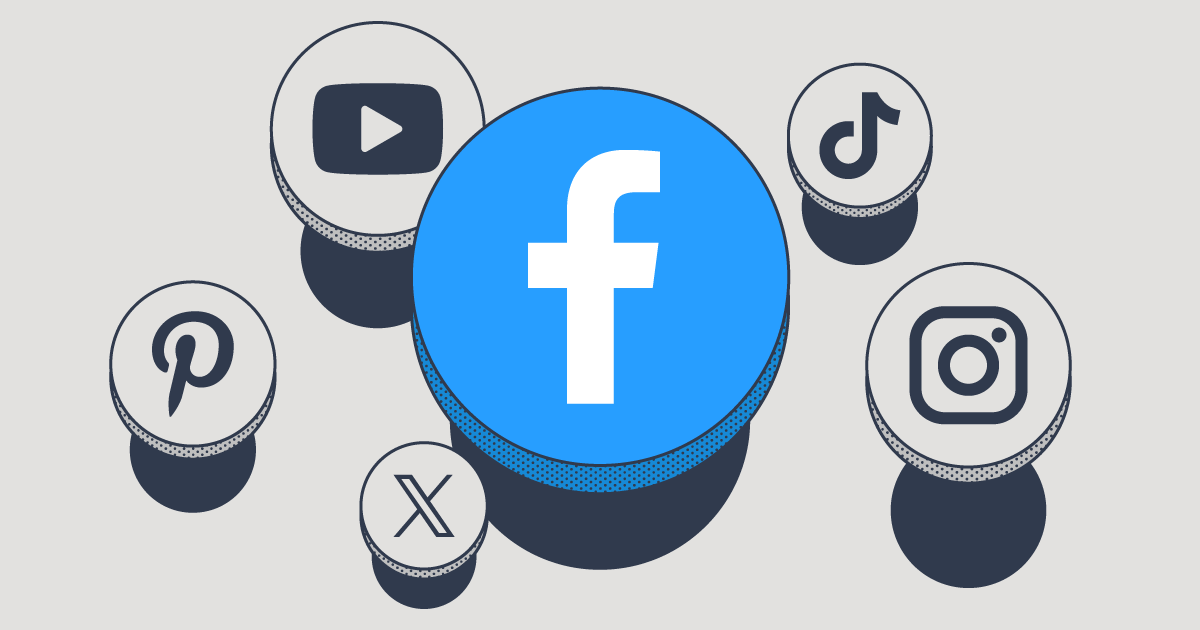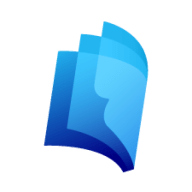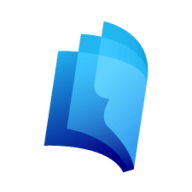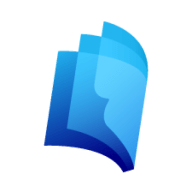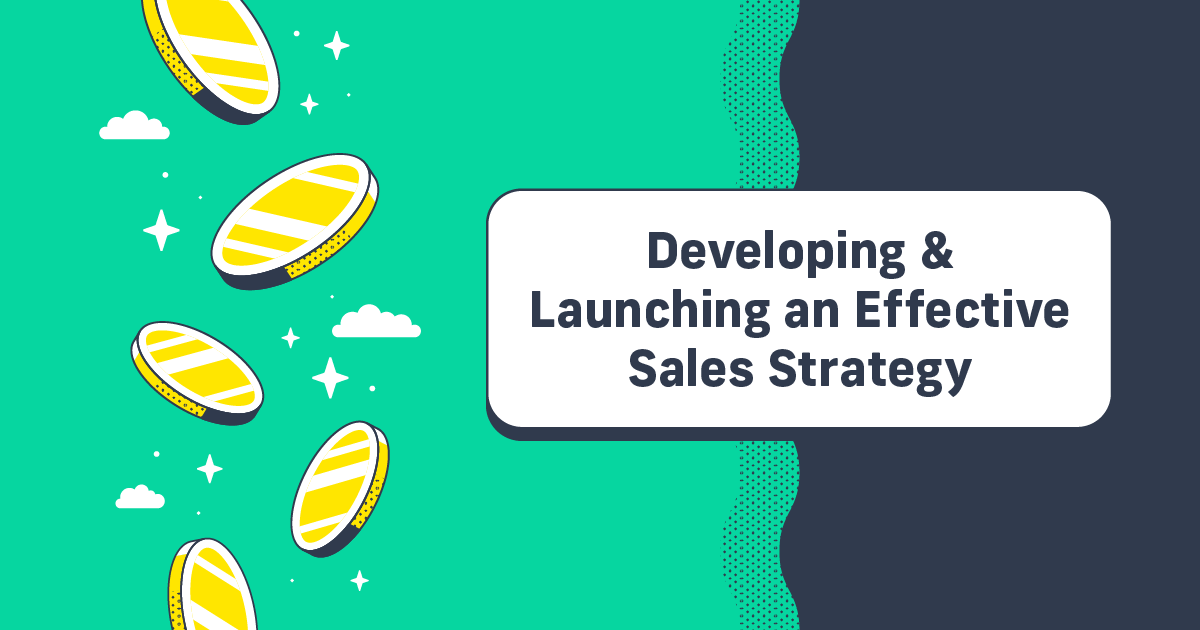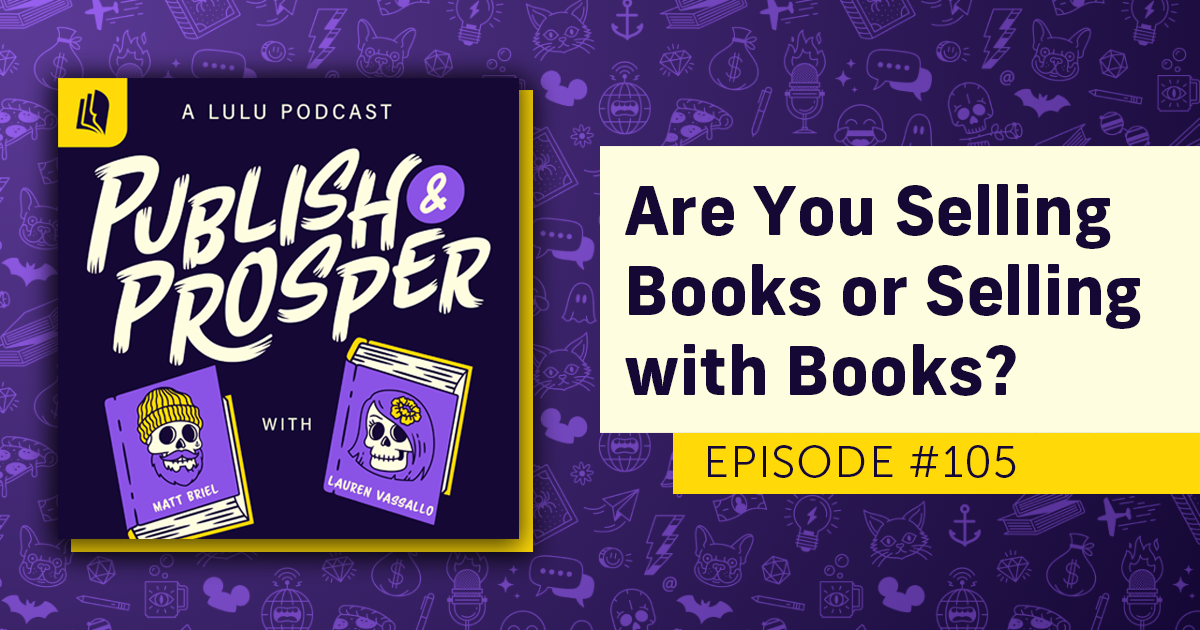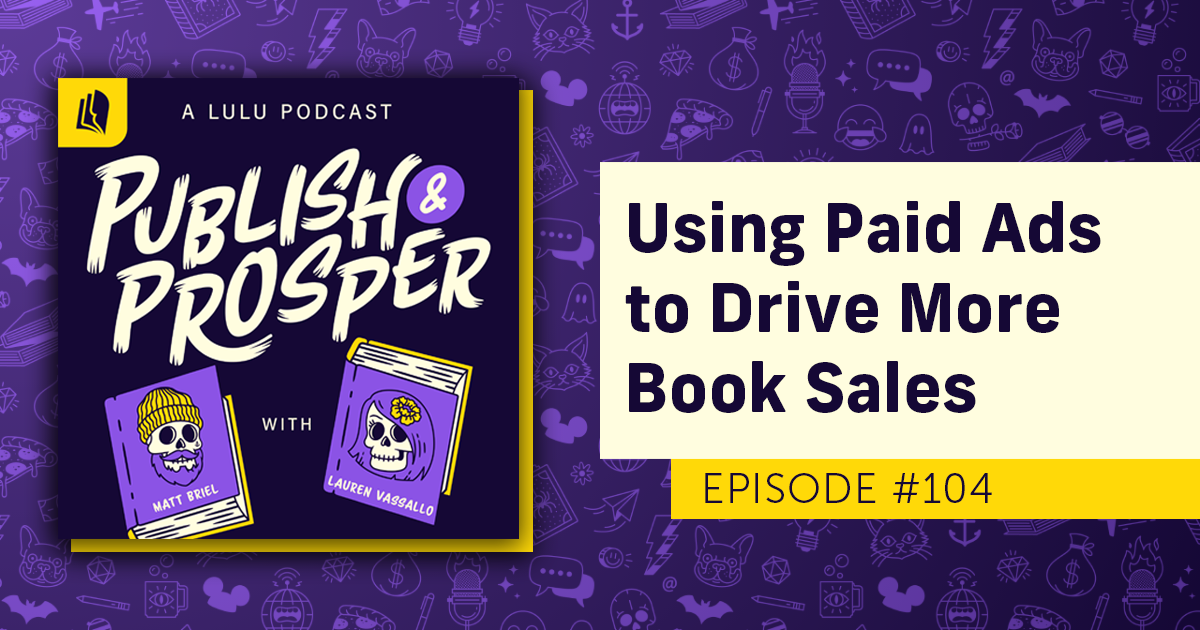Social Media 101: Facebook for Authors
Facebook. Meta, if you’re so inclined. We all know it, we all use it – the real question is, are we all making the most of it?
Love it or hate it, it’s undeniable that Facebook can be a powerful platform for connecting with your audience, growing your brand, and selling your book. So let’s take a look at how you can (and should!) be using Facebook for things like free book promotion, paid ad campaigns, and growing both your audience and your author network.
Social Media 101: The Essentials
Regardless of what platform you’re interested in learning more about, a few basic principles remain the same. Keep these social media marketing tips in mind and you’ll be a pro in no time!
1. Don’t Spread Yourself Too Thin
Facebook, Instagram, X, TikTok, Pinterest, YouTube, Snapchat, Discord, Clubhouse… the list of popular social media channels is ever-evolving and nearly impossible to keep up with. Having a half-hearted and lackluster presence everywhere doesn’t do much for you or your brand. Instead, focus your effort and energy on two or three social networks your potential audience is already using.
2. Separate Your Brand And Your Personal Page
There is a time and place for showing behind-the-scenes or personal content on your professional profiles – it’s fun, engaging content and helps to both humanize you and make you relatable to your followers. But fans of your brand don’t need to be – or want to be – privy to every status update or photo from Great Aunt Ethyl’s 95th birthday bash.
Create a separate account for your brand, and be selective about what you choose to share there.
3. Use the Same Handle on Every Platform
The easiest way for your fans to find you on their social media platform of choice is to keep it simple. Looking for Lulu on Facebook? It’s @luludotcom. Instagram? @luludotcom. X? You already know! Pick one handle and use it everywhere you go.
Pro Tip: don’t make your handle the title of your book! Stick with something evergreen like your name, your pen name, or your brand/business name.
4. Use the Same Look on Every Platform
Familiarity is your friend! You want your customers, or potential customers, to recognize you when they see you. Use the same profile picture – your professional headshot, your brand logo, your most recent book – on every platform. And, in addition to your profile picture, make use of cover photos on applicable platforms, like Facebook and X. That’s valuable advertising real estate, don’t waste it.
5. Cross-Promote
Links to your social media should be readily available everywhere you are – especially your website, your Author Spotlight, and your other social media profiles.
Of course, cross-promotion goes both ways. Your social accounts should link back to your website and your book sales page. Make use of the “link in bio” features wherever possible!

Now that we’ve got the basics down, let’s get back to the hot topic at hand – Facebook-specific social media marketing!
Facebook Profiles, Pages, and Business Managers
To start, you will need three things:
Facebook Profile
A profile is necessary in order to have a Business Page and Business Manager Account. You can use your existing personal profile or create a new one if you want to have a separate one for your business.
Facebook Business Page
Regardless of whether you’re a prolific fiction author, a burgeoning poet, a professor publishing annual textbooks, or a YouTuber turning your videos into books, having a Business Page is the way to go. Remember, your book may be your product, but you, as the author, are your brand.
Facebook Business Manager
Facebook Business Manager is your Facebook (and Instagram) marketing hub. It hosts everything from your custom audiences to your Facebook ad library to your campaign results. Facebook Business Manager will be an essential tool if you’re planning to do any paid promotion on Facebook or Instagram.
Facebook has a robust Business Help Center, if you need help setting up any of these three accounts they surely have the resources to guide you through.
Basic Free Promotion on Facebook
There are plenty of ways you can spend money to promote your book on Facebook, and we’ll talk about those shortly, but your everyday social media marketing plan should focus on free, organic content. What kind of content? Great question!
Different Types of Content
Best practices for content-sharing on Facebook change constantly. It’s not just Facebook, either – have you heard the news that Instagram is no longer a photo-sharing app? Chasing trends might get you flash-in-the-pan success, but even a viral post or two won’t necessarily translate to real fans.
Take the time to experiment with all different types of content and see what resonates the best. What different types of content? Everything! Experiment with content formats – try posting long-form written posts with no links, short teaser posts that link to a longer blog post, polls and open-ended questions, and videos. Experiment with content genres – share articles and blog posts that you wrote, share something interesting you found from another creator, share personal content, and share behind-the-scenes insight. You won’t know what connects with your audience until you try it, so you might as well throw it all at the wall and see what sticks.
Promoting Your Brand
What’s the primary objective when posting on social media? Spoiler alert: it’s not promoting your current book or product – it’s about building community and brand awareness. Promoting your book on social media is important, but books have relatively short lifespans. Once a follower has bought your book, they’re unlikely to buy additional copies. By promoting your brand, and proving that you share relevant, informational, and engaging content, you have a better chance of making a fan out of a follower.
So how do you promote your brand?
Share content that isn’t just about your book! Do you write blog posts? Are you speaking or appearing at any upcoming events? Do you have an email list that you’d like your Facebook followers to sign up for?
It can also be valuable to share insights into your brand. What inspired you to start your business? What’s your favorite part about being an entrepreneur? What does your “process” look like – do you have a designated writing space or content creation space, do you pack and fulfill orders manually, etc.?
Ask your followers to engage with you! Prompt them to share their opinions on an open-ended question, ask for their feedback on your book or a piece of content you shared recently, or even give them the chance to vote on your next book cover or title!

Promoting Your Book
Of course, the endgame here is still to get people to buy your book, right? You can’t do that without promoting your book in addition to promoting your brand! But promoting your book isn’t as simple as just dropping your bookstore URL in a Facebook post or a few dozen comments on other random posts and hoping for the best (in fact, please don’t do that).
First and foremost, do NOT wait until your book is available for purchase to start promoting it on social media! Build hype for your upcoming release by doing things like:
- Post a cover reveal to show off your gorgeous new artwork.
- Share content teasers like chapter titles, quotes, or section summaries.
- Start a countdown to your launch and, if you’re having one, your official launch party.
- Reach out to beta readers, or friends/family/peers that have already read your book and ask them for reviews that you can share.
There’s so much great content that you can use to promote your book long before it’s available to buy, don’t waste time!
What about after your book is published? There’s still plenty of content to post! Share particularly great reviews, spotlights in online publications or other media outlets, guest blog appearances, etc. – on your page. If you run any special discounts or seasonal sales (especially around the holidays!) make sure you share those with your Facebook followers. Let new followers know about any backlist books you might have that they’re unaware of. Host contests & giveaways for free copies of your books.
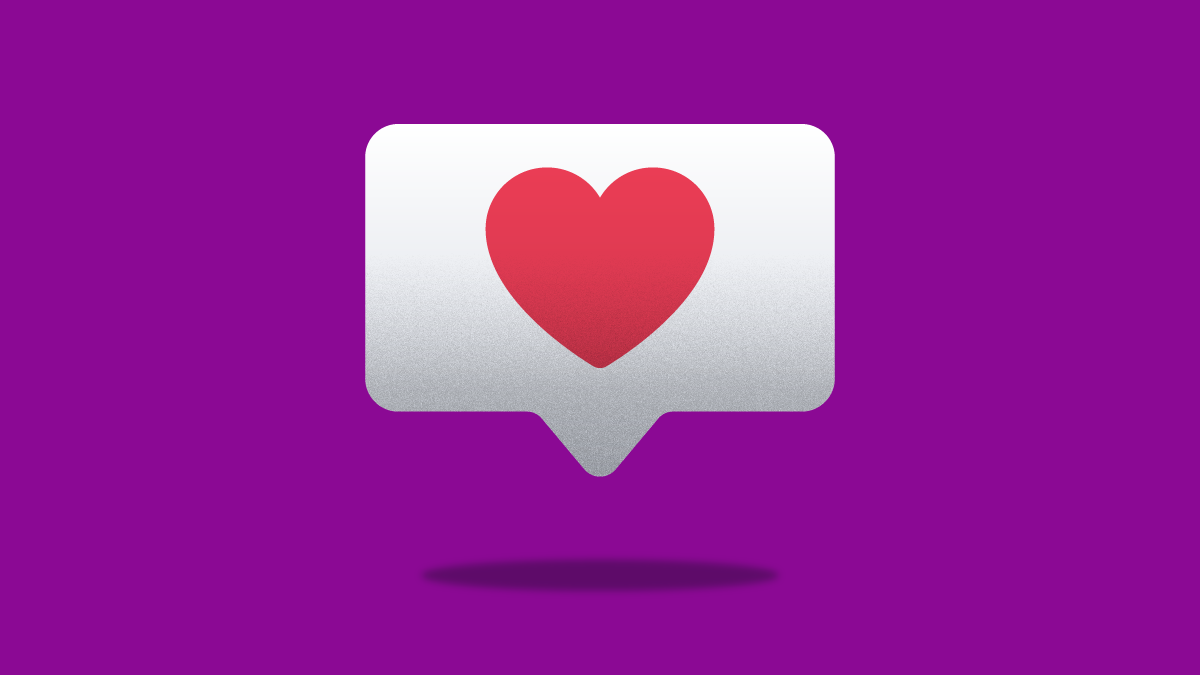
Measuring Your Success
You’re doing all of this work – creating content, scheduling it out so you’re staying present and consistently active on Facebook, responding to comments, and engaging with your followers; it’s time-consuming and no small amount of effort. So how do you know if it paid off?
Book sales are an obvious metric, of course. But there are other social media-specific metrics that matter too. There are a few different types of engagements on Facebook posts that are valuable to track:
- Engagements – a catch-all phrase for any interaction with your post, including Likes, comments, shares, link clicks, other clicks, and video views. On Facebook, any kind of engagement can be helpful – even something as simple as a Like can make your post appear on someone’s Home Feed. The more engagement a post has, the more users it will be delivered to.
- Likes – the Facebook classic, the thumbs up to show you Liked a post (now also featuring Love, Care, Haha, Wow, Sad, and Angry).
- Comments – a written response from a Facebook user directly on your post!
- Shares – another Facebook user’s deliberate choice to share your post to their own page or profile so their fans or friends will see it. This is a great way to get your content in front of a new audience!
- Link Clicks – how many people clicked on the link you shared in your post.
- Other Clicks – any post click that isn’t a specific metric listed above. This could include clicking on the comment thread to read it through, clicking to see who commented on or liked a post, etc.
- Video Views – how many people watched your video for three or more seconds.
- Impressions (People Reached) – The total number of people who saw your post. Impressions do not necessarily equal engagement, so impressions are not a super valuable metric on their own, but they can help put your other metrics into perspective.
- Engagement Rates – the percentage of people that saw your post (impressions) and engaged with it. Facebook itself doesn’t report engagement rates, but many third-party social media management tools do, and it can be pretty useful. For example, you might consider that a post that has 275 impressions and 8 engagements – an engagement rate of 2.9% – performed better than a post that has 1,103 impressions and 13 engagements – an engagement rate of 1.2%
What doesn’t matter? Followers. Because, as we know, followers do not equal fans.
How do you measure Facebook metrics? Facebook itself can provide all the insight you need, especially if you’re using Facebook Business Manager. You can also look into using a third-party social scheduling and listening tool like Sprout Social or Hootsuite. Finally, if you’re not already, you should absolutely be making use of Google Analytics and UTM Tags.
Basic Paid Promotion on Facebook
While the majority of your day-to-day Facebook use will be free, natively shared content, you can also use Facebook for paid promotion. Remember that first, in order to use any of Facebook’s promotional tools, you will need a Facebook Business Manager Account.
Promoting Native Content
When you share a new post to your Facebook page you’ll see a button prompting you to “Boost post.” This allows you to put money behind delivering that specific post to a targeted audience of your fans, strangers, or both.
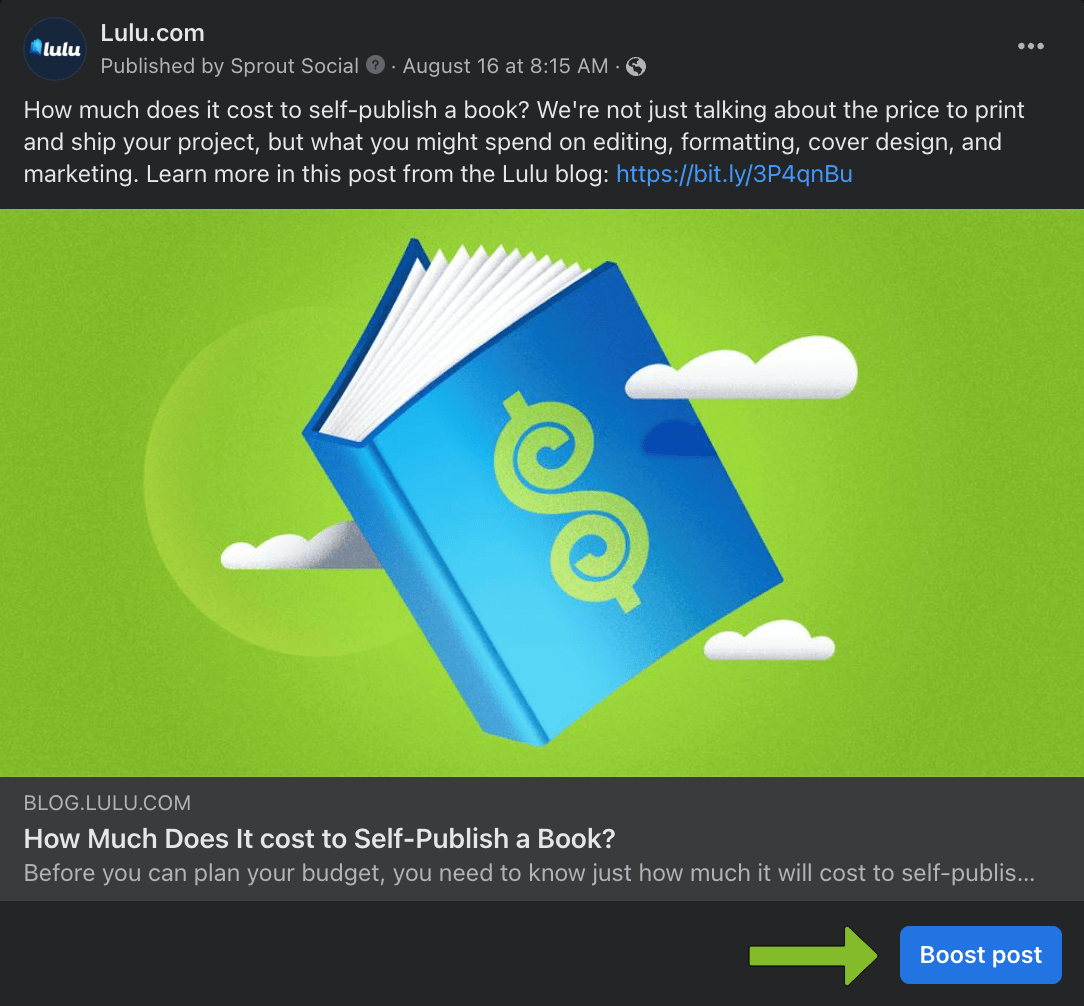
Promoting your native content is a great way to get new eyes on your Facebook posts and drive traffic to your page for just a few dollars a day. If you do decide to try boosting a few of your posts, keep these tips in mind:
- Do experiment with different audience types. Facebook allows you to get pretty granular with your targeting, don’t be afraid to try different options and see what generates the most success.
- Do keep your budget in mind! Even $5 a day adds up quickly – it’s easy to lose track of how much you’ve spent on a promoted post. Plan ahead with a budget and stick to it.
- Don’t boost a post that links to someone else’s content! If you’re putting money behind an active ad, make sure that ad is going to lead people to your website, bookstore page, or Facebook page.

Sell Your Book, Your Way
Sell books on your Wix, Shopify, or WooCommerce website with Lulu Direct.
Or use our Order Import tool for your next book launch.
Facebook Ad Campaigns
The alternative to promoting your native Facebook content is to create an ad campaign in Facebook Business Manager.
A campaign differs from your native content in several ways – primarily, ads do not get posted to your business page or news feed, so you won’t be flooding your page with ad content. Ads can also be placed in a variety of different spots on both Facebook and Instagram (remember that Facebook owns Instagram, and you can control all your paid Instagram content through Facebook Business Manager). In fact, you can control where your ads are placed across Facebook, Instagram, Messenger, and even Facebook’s audience network.
Campaigns are not ideal for day-to-day digital marketing – they can be expensive, and you don’t want to exhaust your audience. Facebook ads for authors can be a great tool when saved for special occasions though! The perfect time for a paid campaign is for your book launch, driving traffic to your bookstore once the book is available for purchase. The holidays are also a great time of year to consider a paid campaign, especially if you’re planning to offer any major discounts throughout the season.
The process of setting up an ad campaign can vary based on your goals, what kind of campaign you’re running, and where you’re running it. The Meta Business Help Center has a variety of articles designed to help you get started. There are also some really fantastic guides available online from resources like Hootsuite and Social Media Examiner.
Measuring Your Success
It’s essential to pay attention to the results of your paid marketing efforts. You’ve spent money to earn these results, after all, don’t you want to know what worked and what didn’t? If it was worth the money you spent?
Facebook Business Manager has all the campaign metrics available in your campaign manager. You can see the results from any ad campaign or native post boost, active or past, during any time period. You can also control which metrics you see, which gives you the opportunity to really drill down into exactly the details that matter to you.
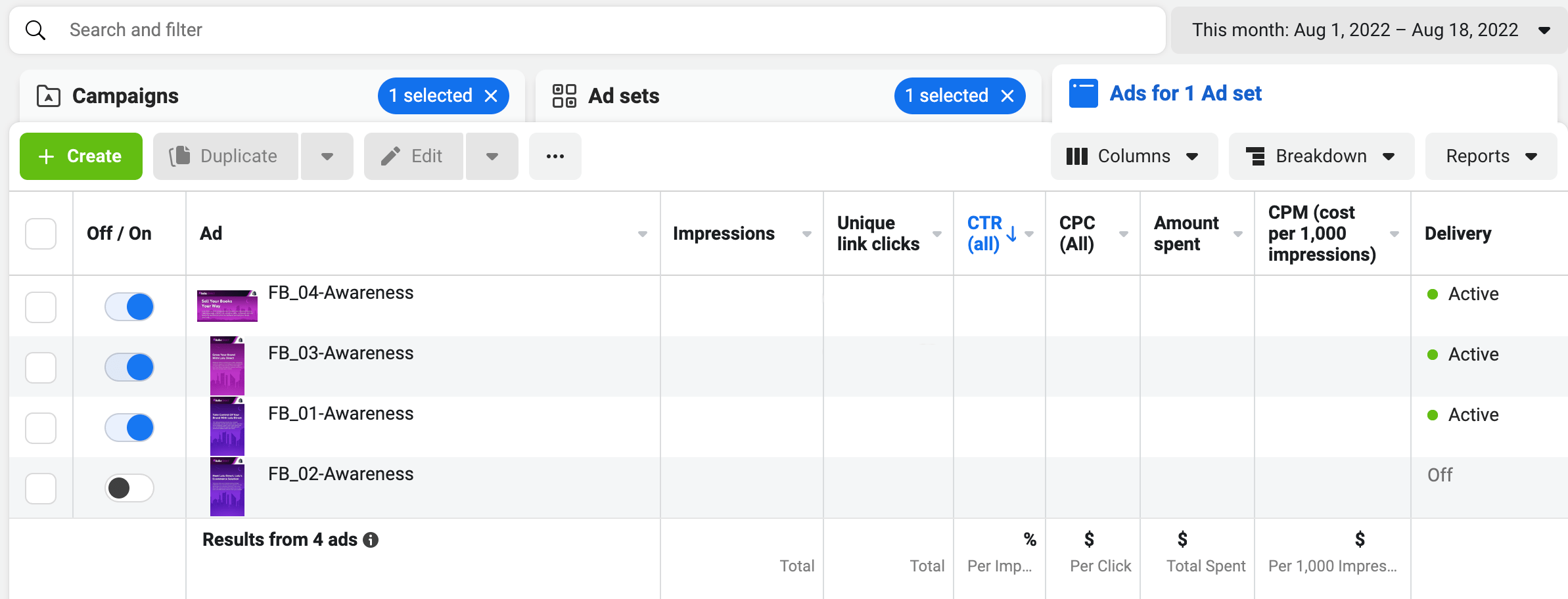
When running a brand awareness campaign, I’m usually interested in seeing how many people clicked on the link in each ad, what the average CTR was on that ad, what my CPC was, and what my CPM was.
There are a few metrics that are always valuable to track. Keep an eye on cost details that will help you determine if your campaign was worth the money you spent, like:
- CPE – Cost Per Engagement – the average amount you spent to earn any and all engagement on your ads. For example, if you spent $100 on a boosted post and you got 50 total engagements (likes, comments, link clicks, etc.), your CPE was $2.00. You can also track the cost per specific type of engagement, depending on what the goal of your campaign was. For example:
- CPC or Cost Per Click
- Cost Per Page Like
- Cost Per Event Response
- Cost Per Message
- CPM – Cost Per 1,000 Impressions – the average amount you spent to earn every 1,000 impressions. Like with native post metrics, impression metrics aren’t necessarily valuable, but they can help determine if your ads are being delivered to an appropriate audience. If you’re spending too much on your CPM, or if your CPM is low but your CPE is high, something about your campaign needs to be changed.

Create Your Book
Use Lulu's free templates to easily create and publish your book today.
Obviously, you’ll also want to track the results that best match your campaign objectives. On Facebook, you can have three different types of Campaign Objectives – Awareness, Consideration, and Conversion.
Each of these categories has more nuanced objectives within them – a Consideration: Traffic campaign, for example, aims to put your ads in front of people most likely to click on the link in your ad. But a Consideration: Engagement campaign aims to put your ads in front of people most likely to comment, share, or like your post. Valuable campaign goal metrics include:
- Link Clicks – how many people clicked on the link in your ad.
- Landing Page Views – how many people clicked on the link in your ad and stayed on the page long enough for it to load in full.
- CTR (Click Through Rate) – the percentage of link clicks per the total impressions for your ad.
- Conversions – you can choose the specific conversion metrics you want to track after a Facebook user clicks on the link in your ad. Options include Purchases, Leads, Subscriptions, Content Views, Adds to Cart, and many more.
For the data nerds like me that want to dive deeper into analyzing and understanding their social media metrics, check out resources like HubSpot or BEAST Analytics.
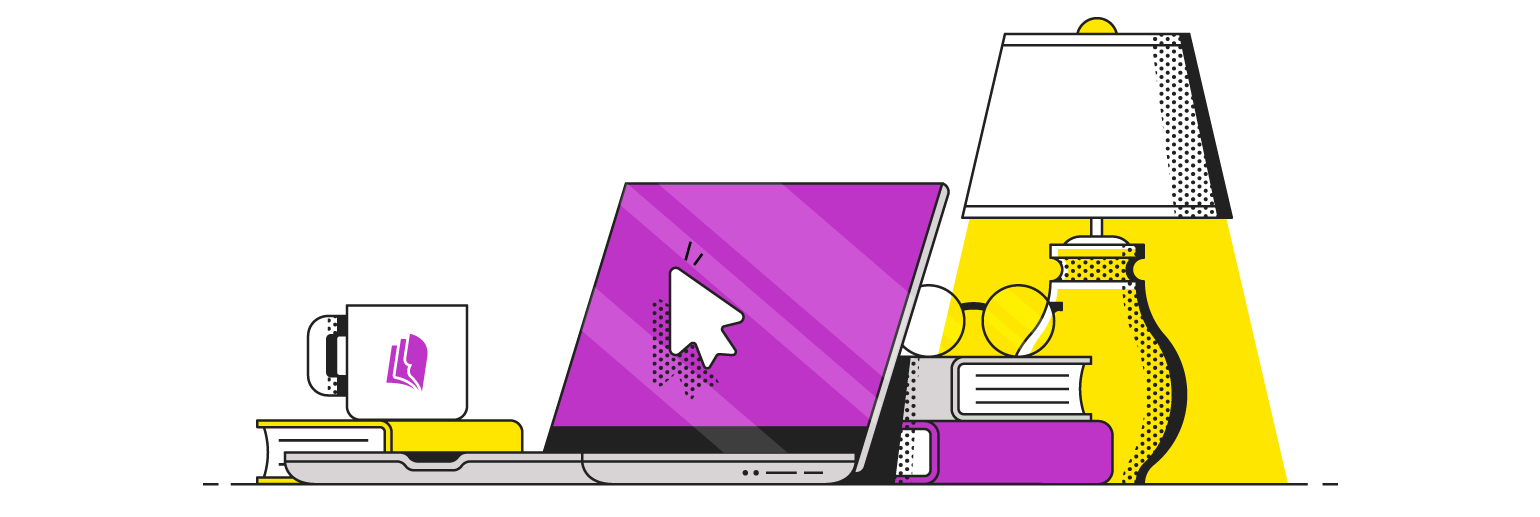
Your Free Lulu Account
Create a Lulu Account today to print and publish your book for readers all around the world
Selling Direct From Facebook
Another thing to consider as you’re planning your social media marketing strategy is selling your book directly from your different social profiles. You can do that through tools built into most social platforms these days, especially with the help of a plugin like the Shopify Starter Plan. Facebook Marketplace for Business gives you the opportunity to set up a shop directly on your Facebook Business Page and sell your books from there!
This help article has all the steps you need to get started on Facebook Marketplace.
Growing Your Author Network
Social media is great for promoting your brand and selling your book, but it’s valuable for so much more than that too. The social part of social media, of course, is about forging connections with like-minded fans all around the world!
Connect With Your Fans and Your Peers
Facebook provides a variety of great opportunities for you to connect with both your fans and your fellow industry or genre experts. Your author or business page, for one, is a great place to foster a community with your readers. They can talk to you in the comments, and you can talk back!
But connecting and growing your network is about more than just being active in your own space. Facebook Groups are great for finding your people. See if you can find a few relevant ones to join and start talking!
Community is everything when you’re a sole-preneur, don’t be afraid to connect with other fans or creators and rely on them as you’re exploring this new space.
Check out this blog post for more ideas:

Keep Up With the Competition
Your Facebook exploration doesn’t always have to be about creating connections with a network of other entrepreneurs and fans. Make the most of your presence in other Facebook Groups or on other Business Pages by doing some competitive analysis and market research.
Look at what your fellow fans are talking about – what they’re asking for, what they feel like they’re missing, what they wish there was more of. Maybe you have exactly what they need in your book. Or maybe you don’t, yet, but you have the knowledge and know-how to create some new content that fills that void.
Also, be sure to keep an eye on what your competitors are doing! Both their successes and failures can provide valuable insight for you and your own social media management.
You Got This!
Social media marketing can seem like a big challenge, especially for a new brand vying for attention on a massive platform with a worldwide audience like Facebook. And honestly, it is a big challenge, but it’s a challenge that can be well worth the effort. Just remember a few basic tips:
- Don’t spread yourself too thin!
- Create a separate business page and curate your content.
- Promote your brand (that’s you!) as well as your book to earn true fans.
- Try experimenting with paid ad campaigns and boosted posts.
- Don’t be afraid to find your community and grow your author network!
And above all, remember you got this! There’s a whole new world of readers and fans out there, and you have all the skills you need to find them, connect with them, and convince them to buy your book. Or, at the very least, to like your Facebook post.

